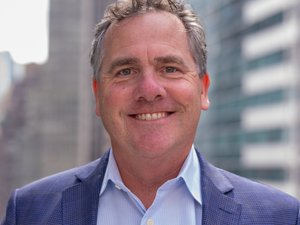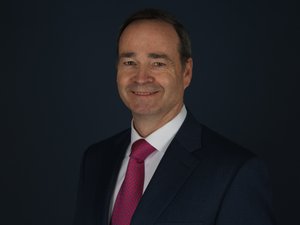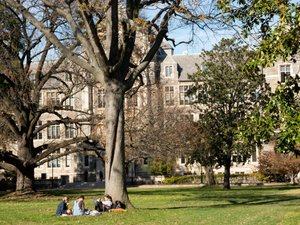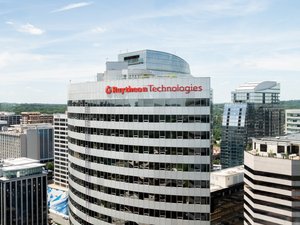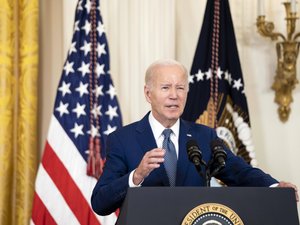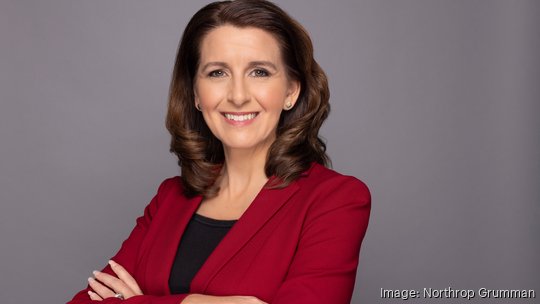
The Greater Washington Partnership has tapped Kathy Warden, CEO of Falls Church contracting giant Northrop Grumman Corp., as chair, giving the 7-year-old business group a high-profile voice as it begins work to revitalize downtowns in the post-pandemic era.
Warden, vice chair of the partnership since 2021, will take the reins Jan. 1. The group, with 37 members representing the corporate, nonprofit and education sectors, focuses on economic development in the region from Baltimore to Richmond.
She replaces Peter Scher, who is wrapping up his third year as chair; his two-year term was extended a year as the group went through a CEO transition.
A spokesperson said Warden wasn’t available for an interview.
Scher said Warden’s appointment signals a new phase for the organization, moving it from “startup” to established institution. She’s the first nonfounder to become chair of the group, whose most recent annual revenue was reported as $8.42 million.
“The fact that she was willing to say, ‘I want to take this baton and I want to continue this work,’ to me that is a great indicator of the strength of this organization,” Scher said.
Scher, the vice chairman of JPMorgan Chase & Co., co-founded the regional coalition of CEOs in 2016 with Monumental Sports & Entertainment CEO Ted Leonsis and Russ Ramsey, CEO of Ramsey Asset Management, to help identify and fill economic development gaps and build a more inclusive economy. Scher and Ramsey are the group's two previous chairs.
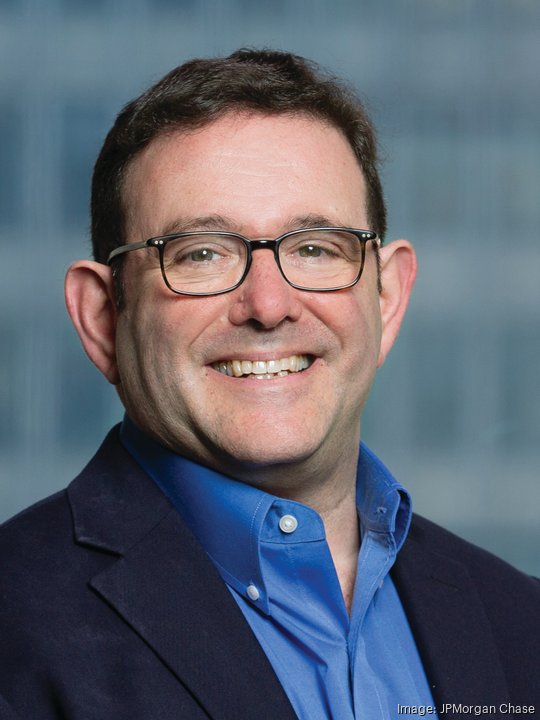
The partnership has gone on to launch a flurry of initiatives. They include a five-year, $4.7 billion commitment to investing in minority-owned businesses in the region, a 10-year-roadmap for inclusive growth and a business accelerator in conjunction with D.C. business development nonprofit 1863 Ventures to help Black, brown and women business owners prepare to compete for and secure contracts with the region’s largest businesses — many of whom are now members of the partnership.
Warden position at Northrop Grumman — not only a local company, but one that works across the globe — will give the region a competitive edge, Scher said. It is the eighth-largest public company in Greater Washington, with $36.6 billion in revenue last year and 6,000 local employees. Warden oversees 95,000 employees and major operations not only throughout the U.S. but also in Australia, France, Germany, Italy and the U.K., according to its most recent annual report.
“All these companies and universities, we’re all competing in the context of the global economy right now,” Scher said. “Young people can choose anywhere to go to school, workers have much bigger variety of choice about where they’re going to work, how they’re going to work. I think having someone with a global perspective is important.”
When Warden stepped into the vice chair role two years ago, she said she took that position to help promote inclusive workforce development, including the group’s Capital CoLAB initiative partnering with local universities and schools to help more students prepare for technology jobs in the region.
“We need to be thoughtful about how we provide the pipeline and pathways to good-paying jobs and to earn a family sustaining wage,” Warden said at the time. “A partnership like the Greater Washington Partnership helps us contribute to these actions. They are just platitudes if you don’t bring them to the local communities where you live and work.”
Warden’s appointment also comes on the heels of Boeing CEO Dave Calhoun and Virginia Tech President Tim Sands joining the partnership’s board. While Calhoun doesn’t live in the region, Boeing has partnered closely with Virginia Tech on the latter’s graduate campus, which is slated to open its first building in Alexandria’s Potomac Yard neighborhood next year. Today, it enrolls about 250 and is operating out of temporary space.
Throughout its existence, Scher said, the partnership has focused on skills and talent, issues that are top of mind for the region’s business leaders.
The pandemic added another element to talent retention — that of hybrid work. The partnership has begun hosting conversations in Baltimore, D.C. and Richmond about revitalizing downtowns and efforts to get employees to return to the office.
Kathy Hollinger, the former head of the Restaurant Association Metropolitan Washington who became CEO of the partnership last year, said more than 80% of the board CEOs have called their employees back to the office at least three days per week.
“One hundred percent we feel that there is a high-value proposition for being in the office and in-person collaboration,” said Hollinger. It’s still figuring out what return-to-office will look like in different parts of the region, though, including with the return of federal office workers.
“I do think that directly ties into what a city may need to consider as they think about vibrancy and revitalization of a particular city — how much is that part of a formula in thinking about revitalization,” Hollinger said.
